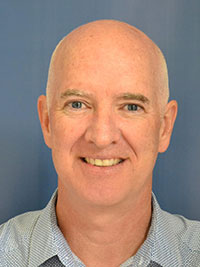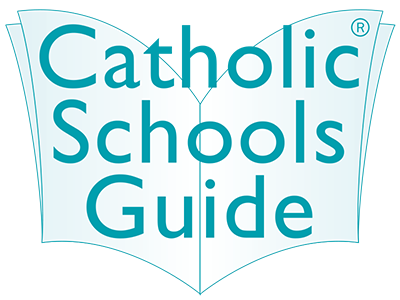News and Media

Language Change The Great Debate by Stephen Campitelli
L@nguage Ch@nge: the gr8 db8 (Language Change: the great debate)
Cloud, virus, blackberry, tweet. What do these words mean to you? Not so long ago they had fairly narrow and specific meanings found in conversations exclusively revolving around the weather, health, fruit and the noise a bird makes. The fact that they now also have other technologically related meanings serves to illustrate two immutable facts about language: it evolves; and that evolution is inevitable.
There has been, for the longest time, debate around whether language change is desirable or whether language needs protection from change that is seen to ‘lessen’ its quality. Before we can consider the question of whether language change is ‘good’ or not, we do need to accept the inevitability of such change.
Why can’t language just stay the same? Being dynamic, languages continually evolve as lexical gaps driven by changing social conditions create the necessity for new words and new uses of words, and at the same time consign no longer needed vocabulary to the past, leading to an ever-changing lingual landscape. And English is particularly good at this sorting process. It has historically been, and continues to be, one of the most accepting languages in the world in terms of embracing new words and usages. It is not without coincidence, given the way in which most English speaking countries have welcomed immigration, that the language has an inherent dynamism that goes with being part of a ‘melting pot’ of influences.
As life changes daily, so must its mouthpiece – language – change, in order to describe the world around it at any given point in history. Like Nature, Language abhors a vacuum, then fills it. If a word doesn’t exist for a concept; one will be created. So, how does this change occur?
Words come into language in a variety of ways; they can be brought with them by an invading power. In terms of English, this process started with the languages of invading Germanic tribes which supplanted the existing Celtic languages of Britain starting in the 5th century. In fact, in terms of illustrating just how far the English language has changed; if you were to travel back to around that time, and for hundreds of years after it, the Englisc spoken then would be all but unintelligible to you, with words such as heofonum for heaven and eorðan for earth. New words are also created when they are ‘borrowed’ or ‘loaned’ from other languages, to fill a need where no equivalents already exist. English has borrowed to a most remarkable extent with, as linguist David Crystal points out, approximately 70% of the Modern English vocabulary loaned from other languages. Examples include vacuum (Latin), lexicon (Greek), cameo (Italian), cannibal (Spanish), robot (Czech), kindergarten (German) and poppycock (Dutch) to name only a handful.
However, perhaps the areas of change that have purists throwing up their arms in ‘horror’ are coinages involving short forms (abbreviations and acronyms), new compound forms, and the phenomenon of language drift. Short forms are common almost universally. Examples of abbreviations include usage of forms such as pls (please); the text messaging variety of abbreviation such as ‘l8r’ (later); and acronyms such as LOL (laugh out loud). Invented compound forms pop up frequently, and you have to be on your toes to catch them. In a meeting just recently, I heard the word ‘ministrivia’ being used to mean ‘trivial administrative matters’ – kind of neat, I thought. Word meaning also, over time, may drift or change in meaning and / or usage. An example of drift is evident in the trend, especially over the past 10 to 15 years to make nouns out of verbs and vice-versa. A famous example of this is Google: the word originated as the noun ‘googol’ (the number 1 followed by a hundred zeroes), which in turn morphed into the more famous name of the largest search engine company in the world; Google. The noun has undergone drift in the past 10 years to be now widely used as a verb (to google something), meaning to search for something on the net.
Where ongoing heated debate exists is around the view that these types of variations result in corrupted language or the idea that “the youth of today won’t be able to spell in 10 years” due to language misuse. Interestingly enough, this is not a new debate. The period of 1530 to 1660, when French, Latin and Greek borrowing reached its peak, also saw some of the earliest and most vigorous debate about English language purity. David Crystal in The Encyclopaedia of the English Language, includes some interesting views from the period from writers such as John Cheke (1514-1557) who virtually advocated a lingual apartheid,
arguing that language should be ‘clean and pure, unmixed and unmangled with borrowing of other tongues’. Some of England’s most famous writers and social commentators railed against language ‘decay’: John Dryden complained about borrowing; Joseph Addison about contracted forms; Daniel
Defoe about the inundation of swearing (in 1697, no less!), and perhaps most vociferously by Jonathan Swift, who worried that without the proper controls on language that it would become unintelligible within a generation. Sound familiar?
Look at the Letters to the Editor in The Age and you can see that the debate continues between those who would rather language was not ‘corrupted’ by these types of changes, and those who would see any attempt at controlling or even less stopping this evolution as not only undesirable, but impossible. And therein lies the crux of the discussion – should we prescribe what should and should not be allowed to be said or concern ourselves with what is said and what is used?
No one would argue that a language does not need the stability provided by rules, grammar and agreed spelling standards, and it is not as if we can adopt a ‘laissez faire’ view of language at the risk of it becoming irrelevant, or worse, unusable. However, people who want to legislate against the change that new literacies such as google and ministrivia represent fail to grasp the fundamental evolutionary dynamism of language, and people’s right of choice to use it where and when they need it.
New words and have been coming into the English language since its inception; perhaps we need to spend less time worrying about stopping it and more time understanding it.

Stephen Campitelli has been involved in education in ESL/EFL and in tertiary contexts since 1988. He was educated in the Catholic school system from Primary through to Tertiary level (receiving his B Ed from Christ College, now ACU) and worked in the Catholic primary school system as a class teacher. He has worked and taught in English language education in Australia, Vietnam, China and Saudi Arabia; and lived and taught in Japan for six years. He holds a Bachelor of Education (Primary) and a Masters of Applied Linguistics, and is passionate about language development, English language education and academic skills support for tertiary students.
He has worked in many facets of education, from the classroom to teacher training, curriculum development, and ESL and tertiary academic skills publications production and editing. Stephen has extensive experience in ESL / EFL teaching and learning materials and assessment development, having been involved with publications and editing for more than 10 years. He currently works as an Academic Skills Advisor at the University of Melbourne, specialising in Education.

